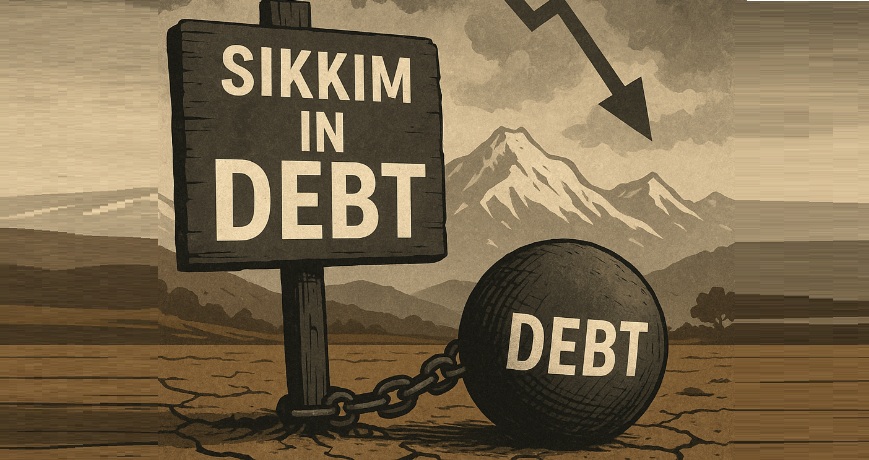
Gangtok, June 30 : Sikkim, often lauded for its picturesque landscapes, faces a critical financial dilemma. While boasting one of the highest per capita incomes in India, the state is simultaneously grappling with the nation’s highest per capita debt. This startling fiscal paradox, highlighted by the Bharatiya Janata Party’s (BJP) Sikkim unit, raises serious concerns about the state’s economic stability and the true prosperity of its citizens.
According to official data for 2023-24, Sikkim’s per capita income has soared to an impressive Rs 7,07,181. However, this seemingly robust figure masks a deeper, more worrying trend. The 2024-25 budget projects the Gross State Domestic Product (GSDP) at Rs 52,555 crore, an 11 percent increase. Yet, over the last five years, state debt has surged by a staggering 83 percent, reaching a colossal Rs 22,380.62 crore – a substantial 42.6 percent of GSDP. The estimated fiscal deficit stands at Rs 2,840 crore, or 5.4 percent of GSDP.
The BJP questions why this apparent economic growth has failed to translate into enhanced security or tangible benefits for ordinary citizens. The party attributes this precarious situation to several factors, including the “rampant distribution of freebies for electoral gains.” These populist measures, the BJP argues, are draining vital resources away from essential public services like education, healthcare, and infrastructure development.
Another significant concern is Sikkim’s heavy reliance on revenue from the lottery business. Described as a volatile and unsustainable income source, the lottery raises serious ethical and governance questions. The BJP warns that this dependency might artificially inflate economic figures without strengthening the state’s long-term financial foundation.

Furthermore, the misallocation of resources is a critical issue. While sectors such as pharmaceuticals, hydropower, and lotteries contribute to a higher GSDP, they have fallen short in creating adequate employment opportunities or consistent state revenues. For instance, the pharmaceutical sector’s contribution to employment is negligible, hydropower yields only a 12 percent revenue share to the state, and the agricultural sector is in decline due to a shortage of farm labor.
The BJP alleges that this scenario has led to “debt-fuelled populism,” where rising GSDP figures are used to justify further borrowing. This borrowing, the party claims, often funds short-term political schemes rather than long-term productive investments, pushing the state into a perilous debt spiral.
In a strong appeal for greater transparency and accountability, the BJP has demanded that the state government release a comprehensive White Paper on Sikkim’s fiscal condition. This crucial document, the party insists, should disclose the full debt profile, future borrowing plans, detailed lottery revenues and their social impacts, and an assessment of the effectiveness of existing subsidies and welfare schemes. It should also evaluate the contributions from key economic sectors and outline concrete measures to curb waste, corruption, and leakages.
The BJP emphasizes that a high per capita income must translate into genuine prosperity for all citizens, not just hidden liabilities. Without prudent financial management, Sikkim risks sinking further under unsustainable debt. The party urges policymakers, opposition parties, civil society organizations, and citizens to unite and demand accountability and a crucial course correction to secure the state’s fiscal future.





